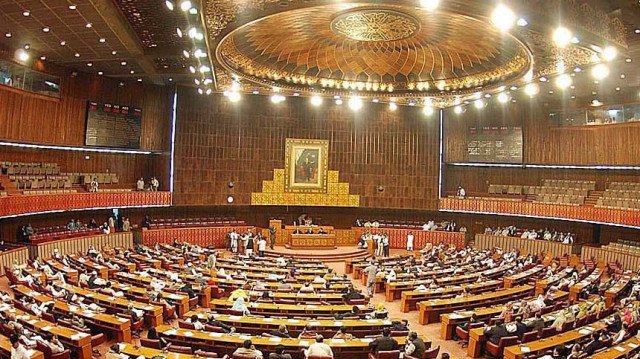Our failure to see our own faults
Lack of reforms or change in security doctrine would lead to further international isolation for Pakistan.

If this is not a paradox, there was more of it in the military’s plea that it be guided by the ‘sovereign’ parliament, only to hear that the parliament was in favour of acting tougher towards the United States; more than the military had done so far. Yet more paradoxically, the government has gone along and celebrated the emasculation of its own mandate. If there was any mismatch between the post-Osama posture of the government and the army, it has been removed by the joint declaration. Now it will be the task of the military to temper the extremism of the joint declaration, at the risk of violating its content.
Foreign policy is not governance; that is why governments retain a lot of leeway in their realistic conduct. The only way a foreign policy measure can be blocked by parliament is when a vote called by the opposition is carried through with a majority. This happened to Manmohan Singh’s government when it signed a controversial nuclear agreement with the US; but in that instance, the government was strong enough to break the majority and counter the opposition. It is in deference to the requirements of flexibility of approach that in both, India and Pakistan, ratification of treaties with foreign powers is carried out by the cabinet and not by parliament. In the US, the president has a lot of latitude in the conduct of foreign policy but even his freedom is curtailed through the ratification process in the US Congress.
The parliament in Pakistan has passed joint resolutions in the past and, quite understandably, they have been observed more in the breach. Parliament wanted the so what , and it wanted to handle the menace of terrorism through talks. And what happened? The US did not call off the drones, even as the terrorists did not prefer talks and carried on killing innocent people. The policy towards the terrorists and al Qaeda required that they first give up their weapons, which they did not do. Also, parliament’s assertion that Pakistan’s territory will not be used for acts of terrorism in any other country was laughed at by the world after the 2008 Mumbai attacks.
Ironically enough, the joint declaration demands ‘policy change’ but wants to retain its anti-India and anti-US direction as practised by the military. The air force says it can shoot down the drones, without clarifying what will be the effect of doing so and also ignoring the fact that many fly from bases in Pakistan and hence, must have tacit sanction of the government. The PPP, which clearly as a result of the whole Abbottabad incident, stands exposed as being weak and not willing to assert itself in any manner whatsoever, has sought an alternative to Pakistan’s policy on America, but the effort may come to naught.
The joint resolution suggests no reform in the military’s India-centric outlook and suggests no change or review of the overall national security doctrine/strategy either. In fact, the status quo seems to have been endorsed. And the terrorists must feel the better for it as they kill 82 paramilitary troops at Shabqadar the same day. This is not good because it can only lead to international isolation and a reinforcement of a mindset, common among many of us, which blames the rest of the world for our ills and refuses to even see inward, let alone take corrective action. Now is the time for us to review/re-examine policies such as ‘strategic depth’, categorising the Taliban as ‘good’ and ‘bad’ and treating them in different way, and of tolerating sanctuaries where terrorists and militants can find easy refuge. These policies have clearly not worked or helped us and, if anything, will only serve to further push us to a pariah-like status. This needs to be realised and a correction must take place. That would be in our national interest.
Published in The Express Tribune, May 15th, 2011.















COMMENTS
Comments are moderated and generally will be posted if they are on-topic and not abusive.
For more information, please see our Comments FAQ